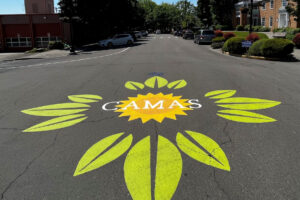Prune Hill residents fervently opposed to having a residential drug treatment center move in next to Camas’ Dorothy Fox Elementary School are taking their fight to the courts.
Brian Lewallen, the Camas attorney representing the Dorothy Fox Safety Alliance (DFSA), said the group will take their case to Clark County Superior Court in a bid to stop the owners of Discover Recovery from opening an inpatient recovery center on a 2.39-acre property known as Fairgate Estate that has been used as a bed and breakfast, wedding venue and, most recently, an assisted living center.
“We are filing a land-use petition act (case) … and trying to fight the hearings examiner’s decision,” Lewallen told The Post-Record on June 7.
DFSA members say they fear the 15-bed drug rehabilitation facility — which is geared toward working professionals seeking help for substance abuse disorders — would harm their neighborhood, endanger their children and lower their property values.
Prune Hill residents formed the safety alliance group in February, a few weeks after the owners of Discover Recovery filed an official application for a conditional-use permit at the Fairgate Estate property.




